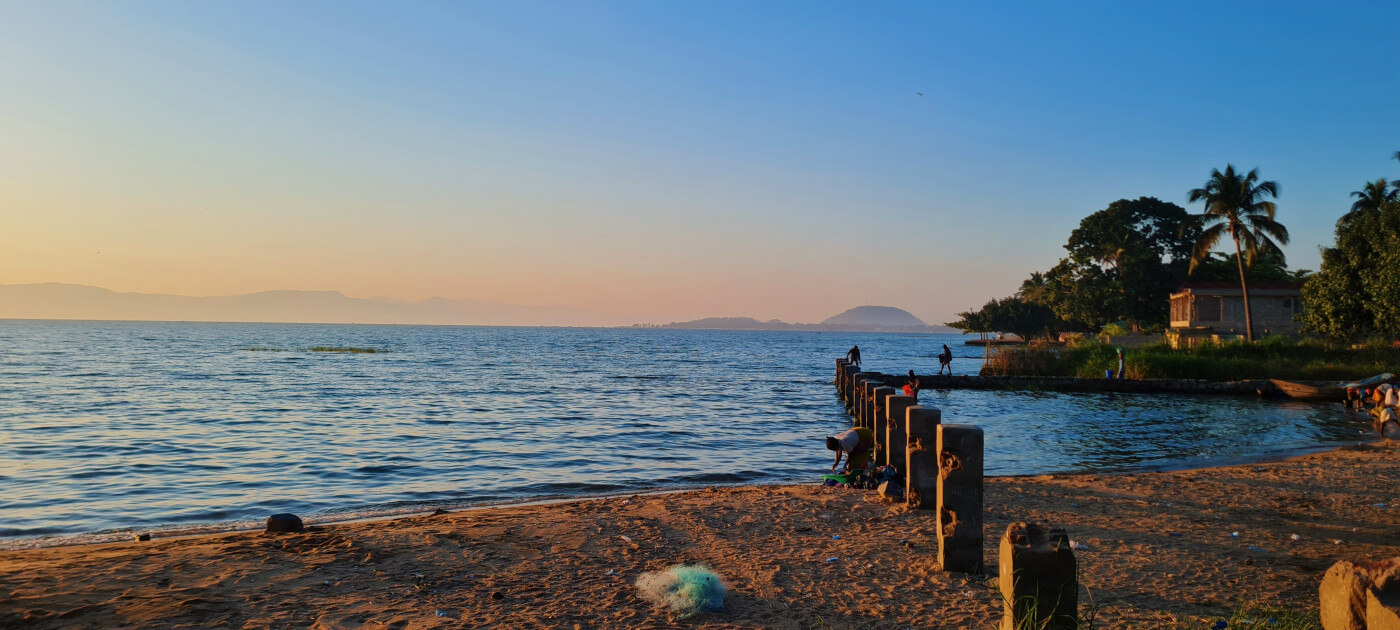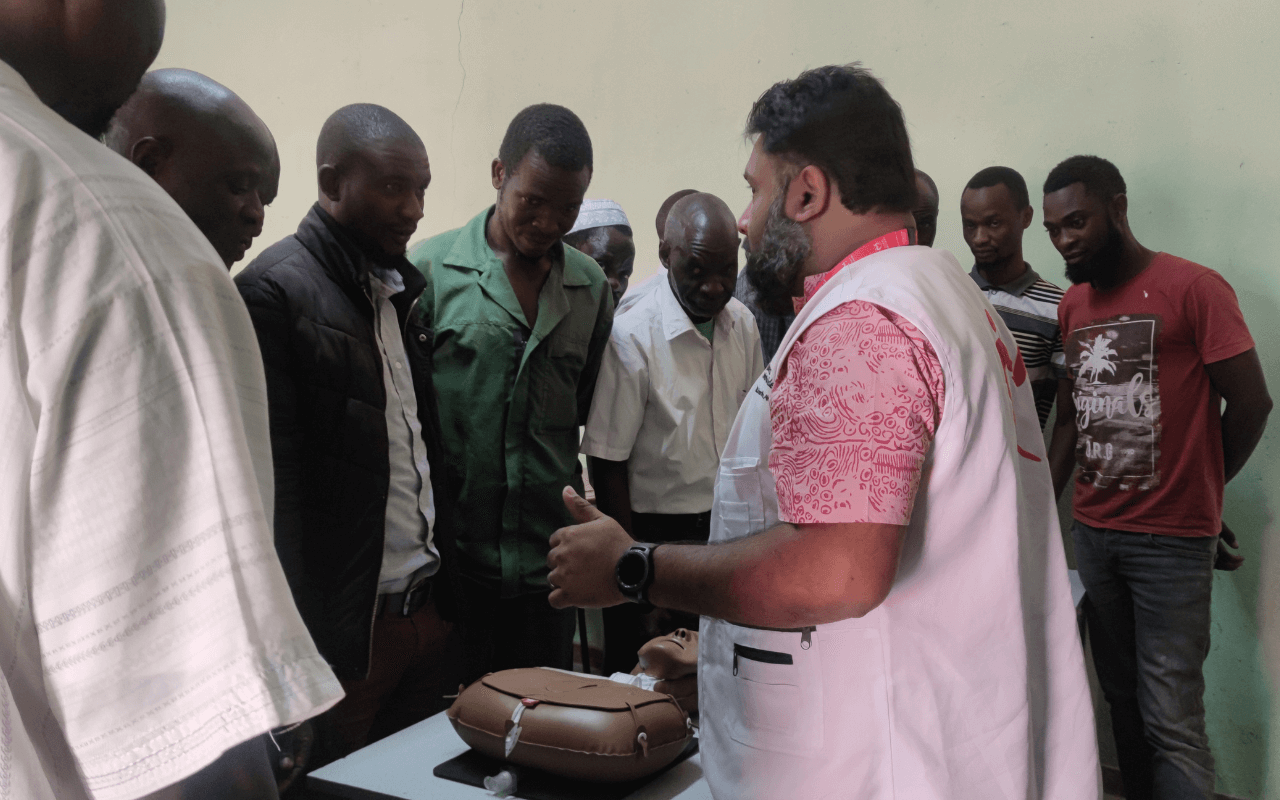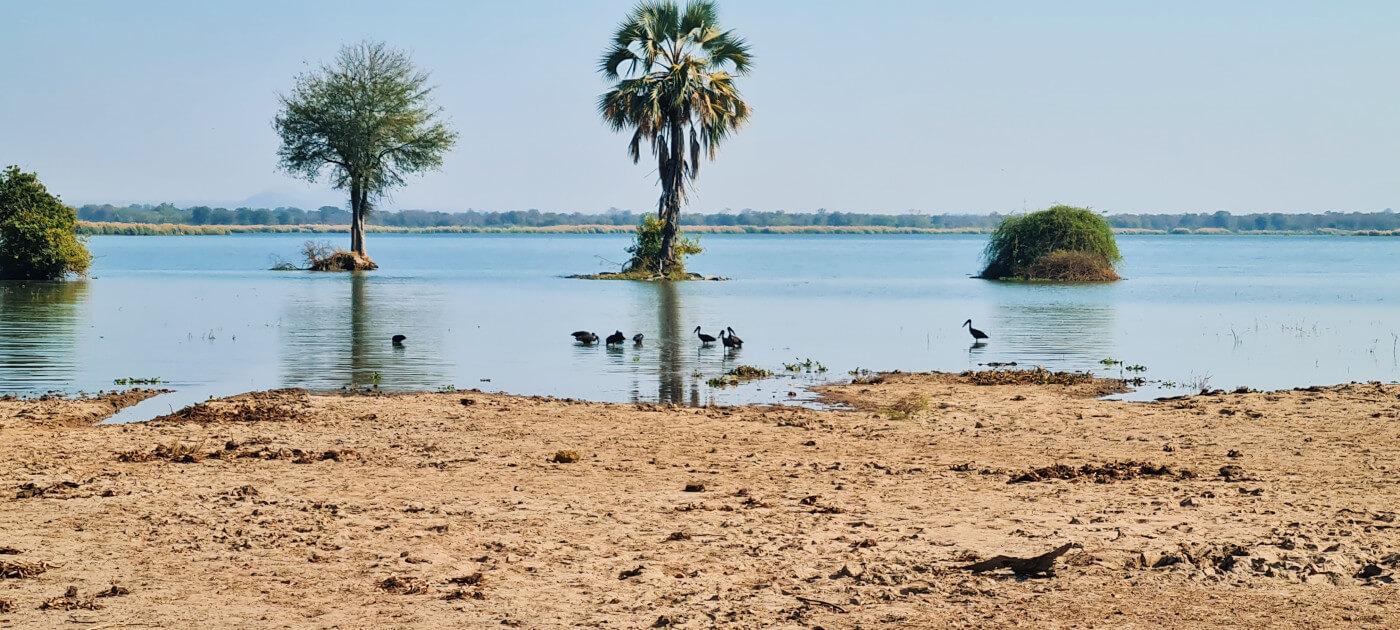At Doctors Worldwide, we are supporting an umbrella organisation of multiple healthcare facilities and clinics in Malawi to offer governance, organisational and training opportunities for its members, to ensure that standardised and quality healthcare is provided to the communities they work with in the long-term. Recently, our team visited Malawi to meet partners, conduct training and clinic visits, as well as visit the site of our soon-to-be-built clinic in the rural area of Balaka. Below, Sayeed Ahmad, our Project Coordinator, shares his reflections.
Malawi, often referred to as the "Warm Heart of Africa," is a country known for its stunning landscapes, rich culture, and warm, welcoming people. Recently, I had the privilege of embarking on a field visit to this enchanting country, and I must say, it was an experience like no other.
As we landed at Chileka International Airport, we were warmly welcomed by our dedicated development partners on the ground. Our base for the trip was somewhere in the middle of Blantyre. This small but beautiful town is nestled amidst picturesque surroundings, making it less congested and incredibly peaceful. The town comes alive during the day, with most businesses closing by 5 p.m., ensuring tranquil nights. An array of delightful restaurants offers delicious cuisine to satisfy every palate.
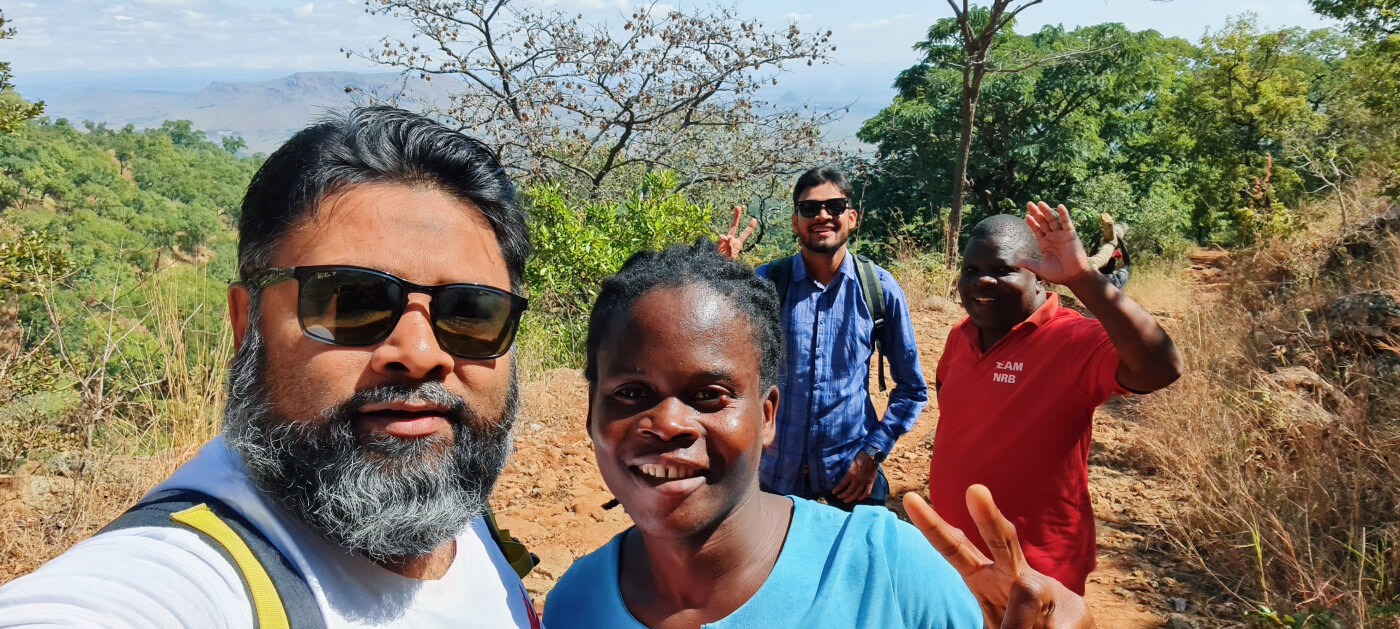 Our primary objective for this visit was to gain a comprehensive understanding of healthcare in Malawi and identify areas in need of support. Our local partner manages several healthcare facilities, which we had the opportunity to visit. Throughout our tour of these facilities, we witnessed significant variations in the services they offer. Some were well-equipped with ample staff and resources, while the majority had challenges in sourcing essential equipment, resources and personnel. It was observed that there is a shortage of doctors in the entire country of Malawi, leading many facilities to be primarily staffed by clinical officers with basic diploma degrees. These facilities primarily serve economically disadvantaged patients, and while some charge minimal fees, others offer services free of charge. Numerous challenges persist within these healthcare facilities, and our on-ground partner tirelessly works to address these issues with our support through training, guidance, information sharing, equipment supply, connecting with the government and other necessary measures, making a considerable impact.
Our primary objective for this visit was to gain a comprehensive understanding of healthcare in Malawi and identify areas in need of support. Our local partner manages several healthcare facilities, which we had the opportunity to visit. Throughout our tour of these facilities, we witnessed significant variations in the services they offer. Some were well-equipped with ample staff and resources, while the majority had challenges in sourcing essential equipment, resources and personnel. It was observed that there is a shortage of doctors in the entire country of Malawi, leading many facilities to be primarily staffed by clinical officers with basic diploma degrees. These facilities primarily serve economically disadvantaged patients, and while some charge minimal fees, others offer services free of charge. Numerous challenges persist within these healthcare facilities, and our on-ground partner tirelessly works to address these issues with our support through training, guidance, information sharing, equipment supply, connecting with the government and other necessary measures, making a considerable impact.
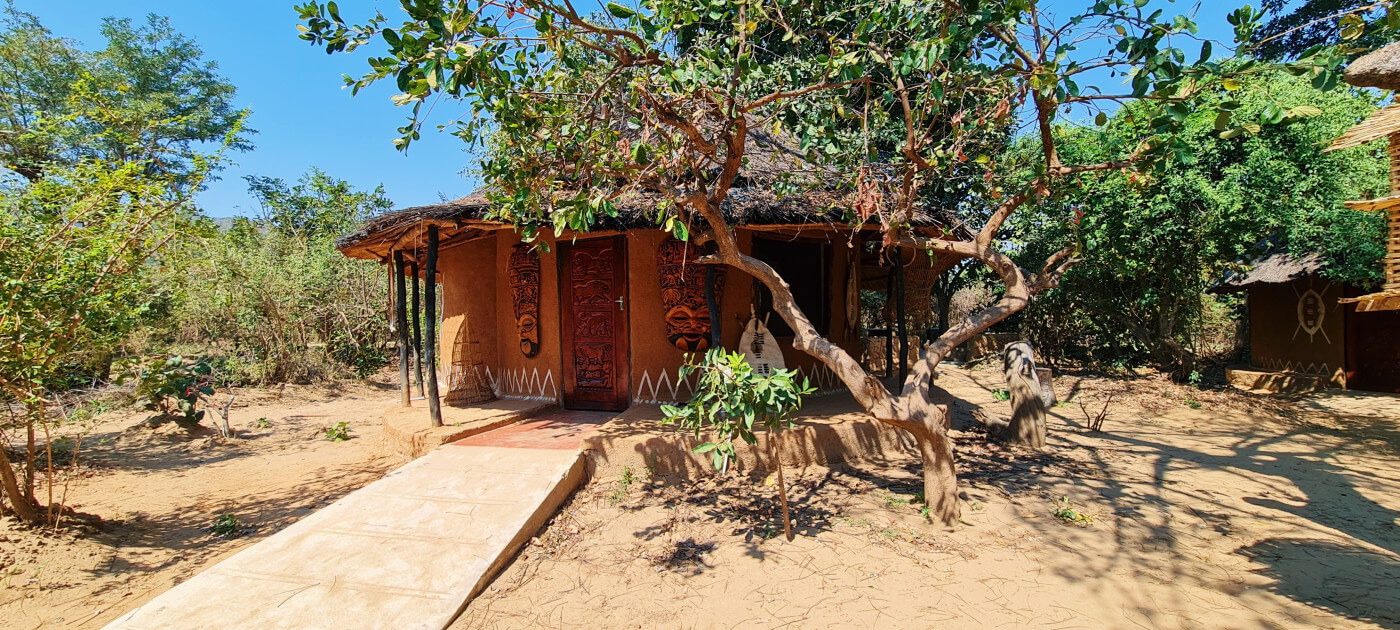 We took a journey to remote parts of Malawi, where we witnessed many challenges of residents' including lack of access to basic necessities like electricity, drinking water, roads, transportation and access to healthcare services. A particular memorable visit was to Balaka, a place that shed light on the daily struggles of the local population. I witnessed women carrying their babies by wrapping cloths on their backs as they walked many kilometres to access the nearest water pump for the collection of drinking and washing water. For these individuals, this daily trek for survival is a way of life. In such conditions, one can only imagine the challenges they face in accessing healthcare, which can be as distant as 20 to 30 kilometres by walk, with no proper roads or transportation.
We took a journey to remote parts of Malawi, where we witnessed many challenges of residents' including lack of access to basic necessities like electricity, drinking water, roads, transportation and access to healthcare services. A particular memorable visit was to Balaka, a place that shed light on the daily struggles of the local population. I witnessed women carrying their babies by wrapping cloths on their backs as they walked many kilometres to access the nearest water pump for the collection of drinking and washing water. For these individuals, this daily trek for survival is a way of life. In such conditions, one can only imagine the challenges they face in accessing healthcare, which can be as distant as 20 to 30 kilometres by walk, with no proper roads or transportation.
Our visit to this remote area of Balaka was driven by the intention to assess locations for the set up of a healthcare facility to serve vulnerable communities. The residents were happy to see our presence, as they envisioned the prospect of healthcare in their area. Significantly, the residents of the community donated their own land for the establishment of this future health facility. They shared stories of losing loved ones by crocodile attacks while attempting to cross rivers in pursuit of medical care to the nearest facility. These deeply saddening stories highlighted to me how often those with easy access to healthcare take for granted their privilege, and how it is something we often forget to appreciate.
 Beyond our field visits, we had the opportunity to explore the natural beauty of Malawi. We went to Lilongwe National Park, Mulanje Mountain, and Lake Malawi. Each of these places exuded unparalleled natural beauty, yet it was evident that Malawi's tourism sector remains relatively undiscovered on the global stage. The potential for these places to attract tourists from around the world is immense, and is a sector that could greatly benefit from promotion.
Beyond our field visits, we had the opportunity to explore the natural beauty of Malawi. We went to Lilongwe National Park, Mulanje Mountain, and Lake Malawi. Each of these places exuded unparalleled natural beauty, yet it was evident that Malawi's tourism sector remains relatively undiscovered on the global stage. The potential for these places to attract tourists from around the world is immense, and is a sector that could greatly benefit from promotion.
At Doctors Worldwide (DWW), we believe that healthcare is a fundamental human right, not a privilege. Therefore, our mission is to reduce healthcare disparities. This commitment is in perfect harmony with our motto of achieving substantial and sustainable results through efficient strategies. The exceptional efforts made by our on-site partners, despite the difficulties they encounter, is truly commendable. We firmly believe that by continuing our support and initiatives, we can make a significant and lasting impact on Malawi's healthcare system. Our presence and support have been deeply appreciated by our partners, reinforcing our belief in the importance of our mission.
In conclusion, our journey through Malawi was not just a deep dive into its healthcare landscape and the lives of its people but an exploration of a beautiful country. It has reaffirmed our dedication to making a positive difference in the lives of the vulnerable communities we serve. Malawi's beauty, warmth, and resilience have left an indelible mark on us, and we are eager to continue our journey of impact and support in the years to come.
